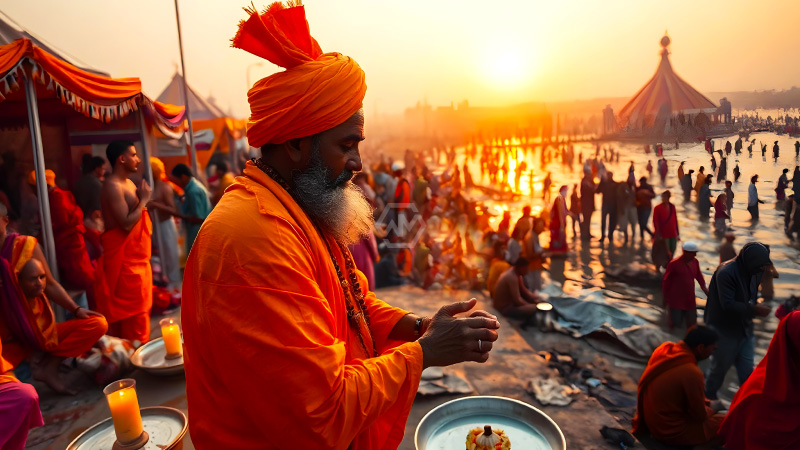- Kalpwas: A spiritual practice involving intense devotion during the Kumbh Mela.
- Rules: Devotees observe strict discipline, including bathing in the river and prayer.
- Benefits: Purification of the soul, spiritual growth, and a path to salvation.
The Kumbh Mela, especially the Maha Kumbh Mela, is a world-renowned Hindu festival that takes place in Prayagraj, Uttar Pradesh. The event attracts millions of devotees who gather to take a holy dip in the river, perform religious rituals, and seek spiritual purification.
During this period, some devotees observe Kalpwas, a practice of living in austerity while focusing entirely on devotion, prayer, and meditation. It is a sacred tradition believed to cleanse one of sins and bring spiritual enlightenment.
Kalpwas in Maha Kumbh 2025: Rules, Significance, and Spiritual Benefits
Kalpwas is not just a physical commitment but a mental and emotional discipline as well. Devotees abstain from worldly pleasures, focusing on purifying their mind and soul. The practice involves strict rules such as bathing at specific times, chanting mantras, and observing silence during certain rituals. Those who observe Kalpwas believe that it leads them to spiritual awakening and helps them achieve liberation from the cycle of birth and rebirth.
The practice of Kalpwas is believed to have originated from ancient Hindu traditions and continues to be a significant part of the Kumbh Mela. Devotees who observe Kalpwas live in austere conditions, often in temporary shelters along the riverbanks. They refrain from engaging in worldly activities, focusing on self-discipline and devotion. The practice involves daily rituals, including the sacred dip in the river at auspicious times, and the recitation of mantras.
Kalpwas is rooted in the belief that by purifying oneself during this time, one can cleanse their sins and achieve spiritual elevation. The rules are rigorous, requiring strict abstinence from foods, distractions, and other indulgences. It is a commitment to personal transformation, with the hope of attaining moksha or liberation. The ritual has spiritual benefits not only for the participants but also for those who observe it from afar.
As the Maha Kumbh Mela attracts millions, the observance of Kalpwas represents the deep devotion and connection that people feel with their faith and the divine. For many, it is an opportunity to start anew, leaving behind past mistakes and seeking solace in the sacred waters. The festival continues to be a symbol of India’s rich cultural and spiritual heritage.
The Maha Kumbh Mela, with its tradition of Kalpwas, remains a profound event that offers devotees a path to spiritual purification, self-discipline, and eventual liberation.
“Spirituality is the awakening of the soul to a deeper reality.”



